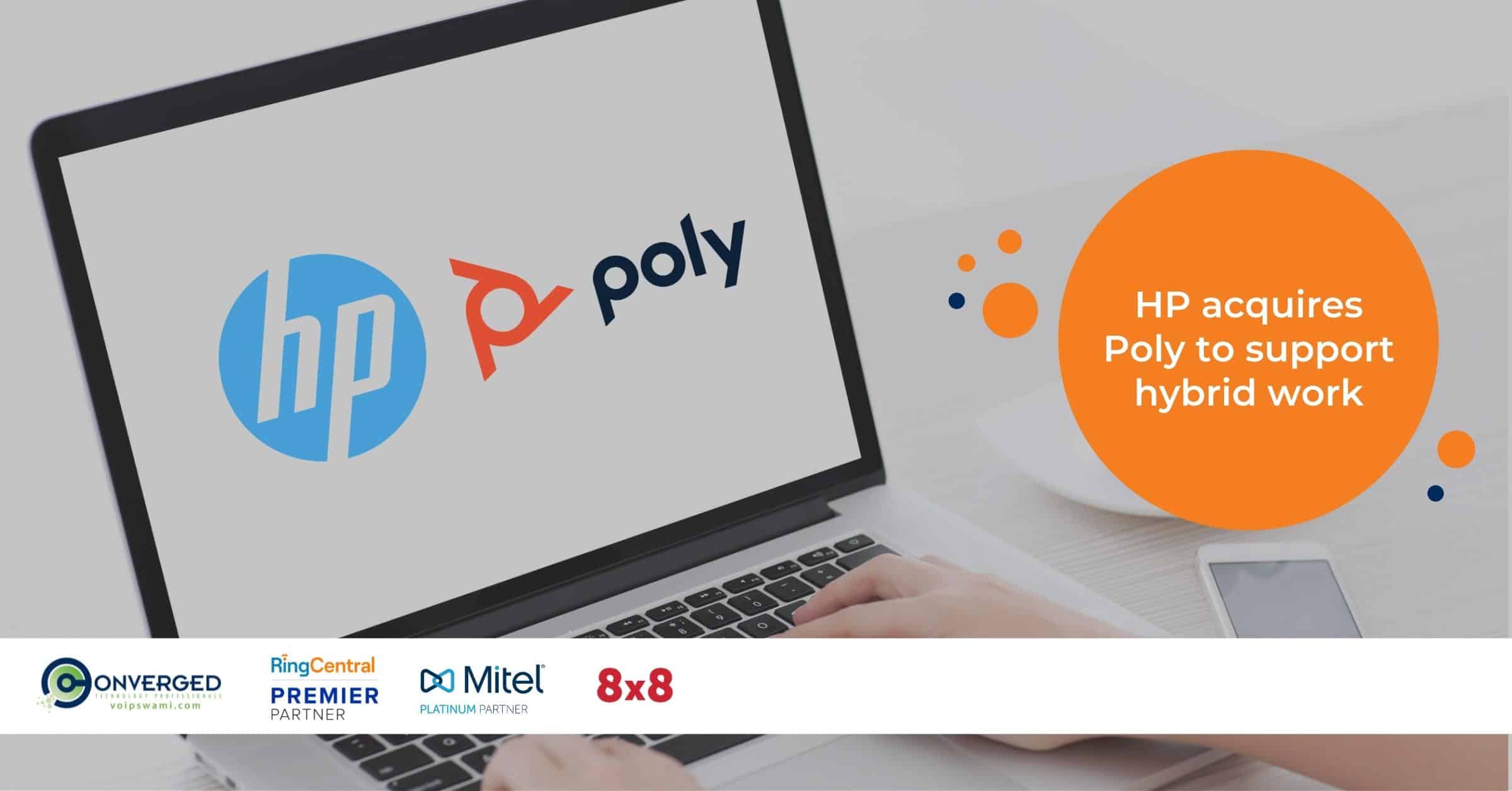
Do you need more proof that hybrid work is here to stay and not a waning trend? Technology company HP recently announced the purchase of Poly, a video and audio equipment specialist.
Before we talk about why that's a big deal, let's talk about the details of the purchase itself.
According to HP's press release, Poly was acquired by "an all-cash transaction for $40 per share, implying a total enterprise value of $3.3 billion, inclusive of Poly's net debt. The acquisition accelerates HP's strategy to create a more growth-oriented portfolio, further strengthens its industry opportunity in hybrid work solutions, and positions the company for long-term sustainable growth and value creation."
So, why does this matter? Because HP is buying Poly to ensure a strong presence in video meeting room solutions, a cornerstone of hybrid work.
The big players in the industry see hybrid work for what it is: the here and now and the future. They're positioning themselves to capitalize on ensuring they've got a stake in helping people work the way they want—from anywhere.
Hybrid is Here to Stay
By now, you've probably heard the term The Great Resignation. Many organizations were surprised by the mass exodus of employees when reported for the first time. And then it happened again, and again, and again.
The point is, that people's expectations around working have changed. If employers want to keep up, they'll have to make sure they can provide their staff with flexible work opportunities and the functionality for staff to collaborate in real-time, which means the ability to access business communication tools from home, the office, or both on a regular basis.
But, if your organization is still using an old legacy PBX system, that will be much more difficult. On-prem systems lack agility and can't pivot like a cloud-based communications solution, where employees aren't primarily reliant on their desk phones.

How Hybrid Work Works
Depending on specific business needs and objectives, companies have to decide how they want staff scheduled for hybrid work to work. You'll want to consider how departments and individual team members conduct their day-to-day duties.
For instance, do you have employees who require face-to-face interactions to perform their jobs? Do you want some staff working in the office while others work from home? Or does it make sense for everyone to work a certain number of days in-office and the rest from another location?
There are numerous ways to configure hybrid working schedules. You can undoubtedly adjust for seasonality or other reasons once you figure out what makes the most sense for your business.
The other component—a reliable cloud communications platform—is essential for making today's hybrid workplace productive, efficient, engaging, and equitable for everyone involved.
Here are some of the benefits providers like RingCentral and 8x8 offer:
-
Mobility: Access all your work communication tools anytime, anywhere from any device with an internet connection.
-
Flexibility: On the go? With call flipping, you can start a conversation on one device and switch it to another. Same with meetings; switch between mobile and meeting rooms with one click.
-
Simplicity: Uses one application for messaging, phone, and video, reducing app overload and login burnout.
-
Cost-Effective: While there are initial costs in moving to the cloud, it's often less expensive to maintain in the long run due to several factors, including not having to house equipment on-site and a decrease in third-party vendor contracts.
-
Security: Say goodbye to data compromises. Providers follow stringent security requirements for every industry and are compliant with HIPPA, FINRA, FERPA, and more.
-
Easy Administration: The provider performs software and security updates in a manner that won't disrupt your business.
-
Limitless: When it comes to hiring, many companies that have adopted remote and hybrid work find they have unlimited options to meet the best candidates from all over the country and maybe the world.
How to Migrate to Cloud Communications
Maybe it seems evident that participating in modern business requires the latest communication tools. Also apparent is that well-known, established companies like HP see the writing on the wall and are getting in on the action.
While the above is true, many companies put off migration to an updated system because it can be overwhelming.
It doesn't have to be that way. There are options to make the deployment as pain-free as possible. From staged migration to full-fledged adoption, the right technology partner can act as an advisor with only your best interest at heart and help assess, plan, implement, train, and support you every step of your journey.
If you'd like to know more about how hybrid work can help your organization, contact us.
If you enjoyed this article you may also enjoy:
